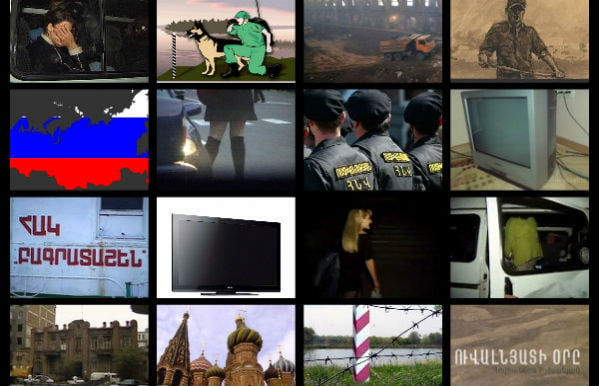
These days, it seems, an incident can be perceived at once as an encroachment committed on unshakeable grounds and as a daring and free creative expression. That is, according to interpretation, key individuals in an incident will either be condemned (including up to being sentenced and prisoned) or considered exemplary (receiving a medal, diploma or parliamentary mandates).
And since state agencies often make surprising, even stunning, steps, the work of the media industry has increased — since it’s those of us in media who try to find justification in quite meaningless decisions to present to the public.
Due to a change in the way the ruling system in Armenia has begun to work, absurd situations have increased in our lives. For example, colliding are moral norms and church rules, national security and the lexicon of young bloggers, the free trade of speech and the free trade of the body, false morality and market relations. Historical and cultural monuments meet the RA Minister of Culture and crumble, while the Armenian government alienates land and hands it over to another country as possession, portraying this act as a mission resulting from national interest.
Generally, apostles have increased in our country. Joining their ranks, for example, is the Military Police, which has asked local blogger Hovhannes Ishkhanyan to give written explanations related to his book of stories called The Day of Discharge. Then, also feeling the need for explanations was the central investigations division of the police (assuming the role of a missionary). According to law enforcement officials, the author is disseminating pornographic material and unsuitable vocabulary through his work, which harm girls’ dignity and the image of the army.
Alongside this, the police has banned a website (which publishes photos and a price list) that legitimizes the work of sex workers in Armenia.
We might also recall Yerevan’s partially demolished Pak Shuka (ironically, the “closed market”) with its uncertain future, which is being demolished under the guise of protecting historical and cultural interests (Armenia’s Minister of Culture mentioned sanitary norms, which are probably a priority for this state agency).
The media is highly discriminatory in its portrayal of all three of these cases. On television, moral rhetoric can be seen mainly as the practice of using a shield (which, by the way, is classified higher than the letter of the law). TV stations highly criticize both the porn site and the creative work of fiction, while welcoming the “modernization” of the Pak Shuka, which is unique architectural building (but becoming a supermarket with doors and windows of European design).
The absurd usually becomes stronger when something done in one genre (sector) is criticized by the rules of another genre (sector). A legal, cultural and criminal disorder happens, one of the “guilty” of which is Armenian television. It puts into circulation incidents, placing importance not on their genre, place or significance, but on the explanation of the ruling system. The incident, after all, is a little bit more than a record —it is also a context.
No television journalist asks herself why is the police defending our moral character, religion and mother tongue, while at that same moment TV stations are violating our mother tongue by broadcasting programs and films in a foreign language?
It’s noteworthy that the Pak Shuka is being demolished from the dome (instead of renovating the drainage system), while the website portraying sex workers is being locked down with great clamor — even though it’s only an expression of market relations (a type of innovation in the porn industry) and not a solution to a problem.
It’s interesting — will the creative work be able to be analyzed according to criminal laws, and by shutting down the porn site, be sure that there will no longer be a desire to sell the body? Well, the drainage system is also a cultural issue.
Nune Hakhverdyan
The views expressed in the column are those of the author's and do not necessarily reflect the views of Media.am.


Add new comment
Comments by Media.am readers become public after moderation. We urge our readers not to leave anonymous comments. It’s always nice to know with whom one is speaking.
We do not publish comments that contain profanities, non-normative lexicon, personal attacks or threats. We do not publish comments that spread hate.